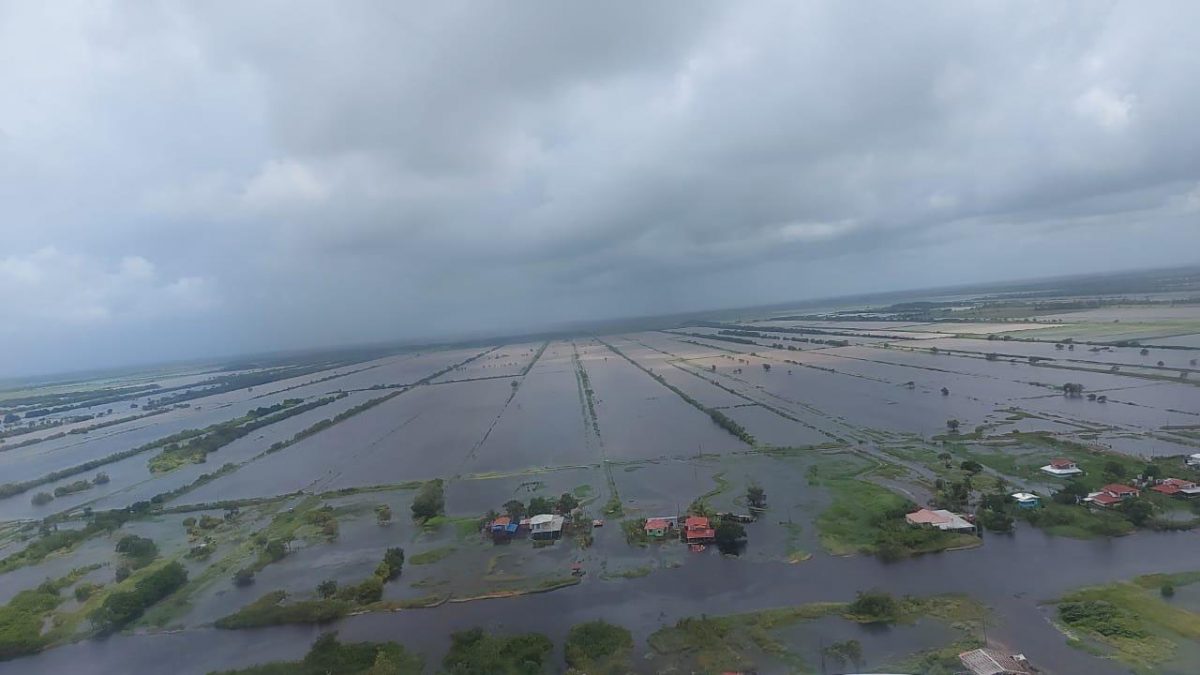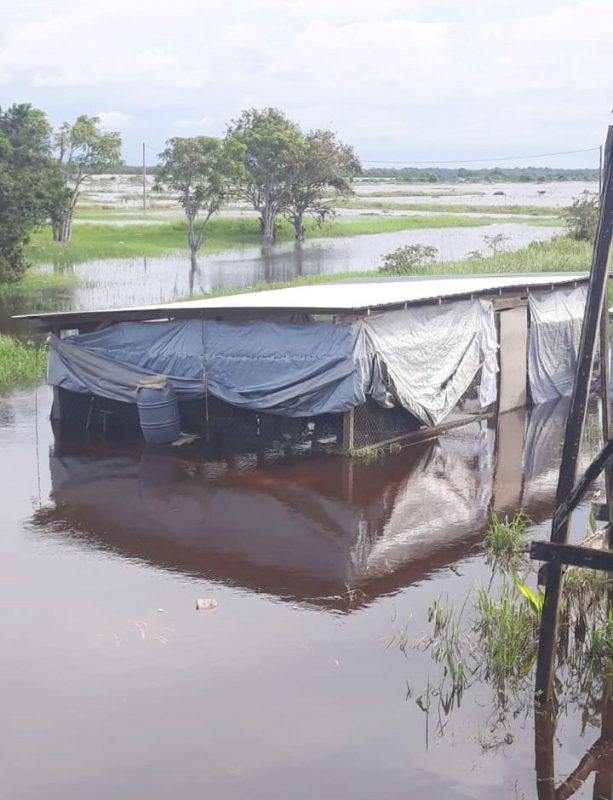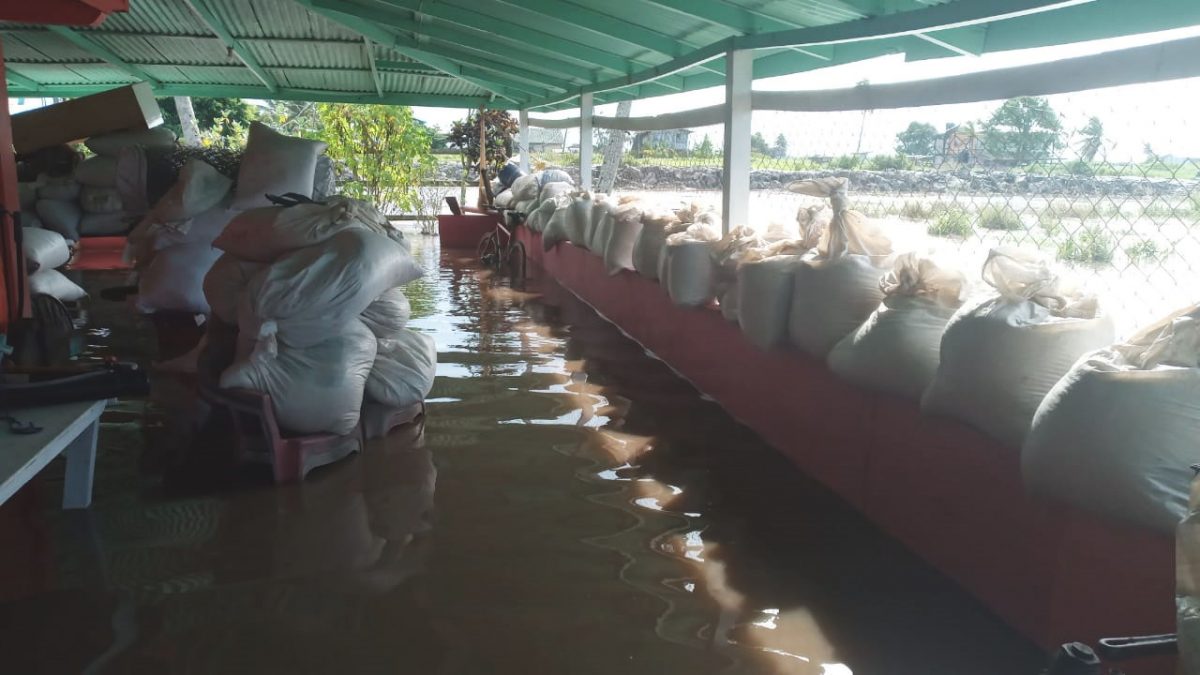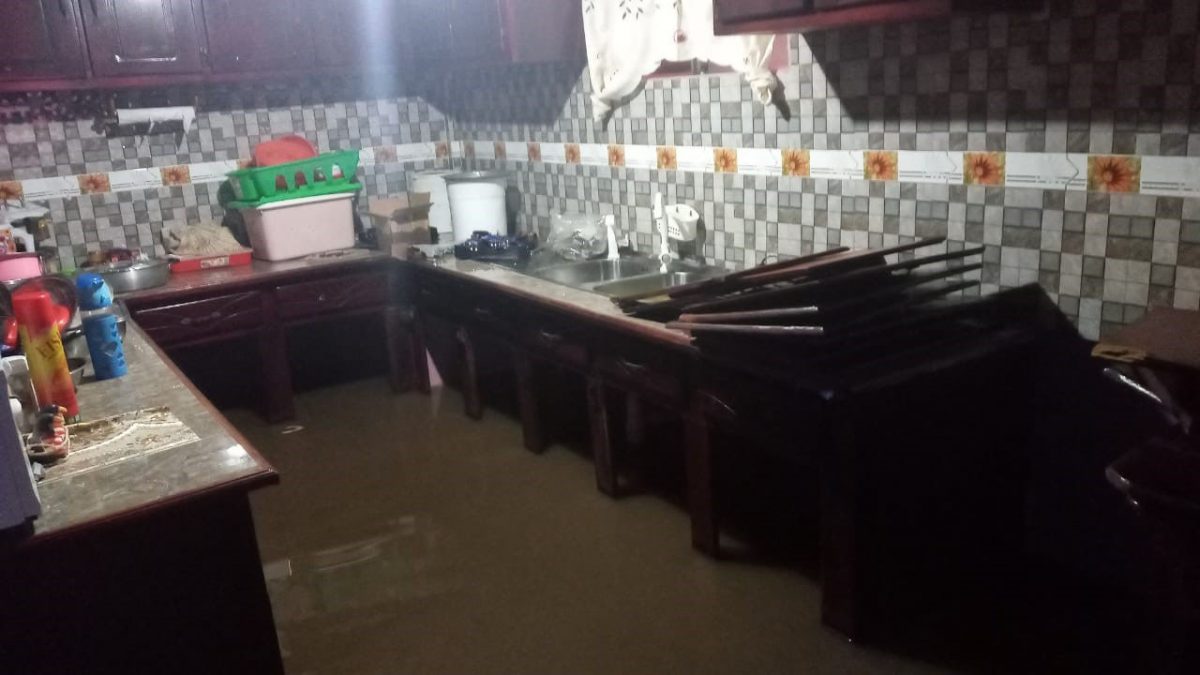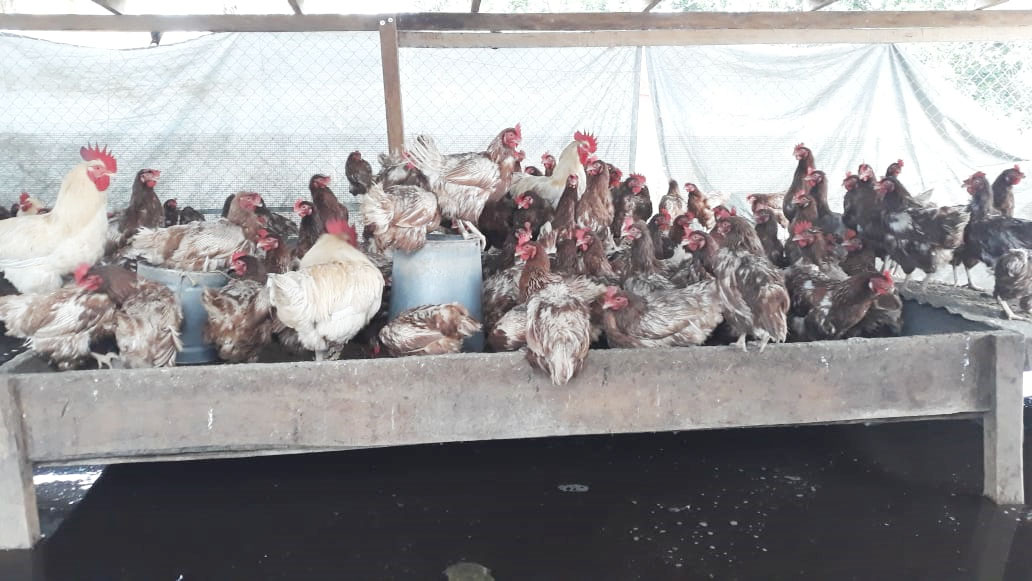Chairman of the National Drainage and Irrigation Authority (NDIA) Board Lionel Wordsworth yesterday dispelled the suggestion that there is a breach of the East Demerara Water Conservancy, which is suspected by residents of Mora Point, Mahaicony River, due to excess water on the land that is continuing to rise.
However, Wordsworth told Stabroek News that water level in the conservancy remains at a manageable height.
He explained that since the start of the rainy season, the NDIA has been monitoring the conservancy’s water level and the most recent assessment has indicated the banks remain uncompromised.
At the same time, frustrated Mora Point residents like Ramchan Jagdbeer are trying to understand why the water is continuing to rise as their losses pile up.
As of yesterday water levels climbed to over two feet, forcing residents to stay in the upper flats of their homes in the community, which is located approximately 15 minutes away by boat from Mahaicony Branch road.
They noted that it was only on Thursday that the water levels started to rise despite heavy rainfall over the past few weeks. Almost all of the residents who spoke with Stabroek News said that they did not think the floodwater was a direct consequence of the rainfall and opined that the East Demerara Water Conservancy was breached.
“This cannot be rain water. We live here for years’ [and] experience so much rainfall but never see nothing like this. The rush this water coming with telling us is water is coming from the conservancy. We don’t know if it break away or it is overflowing but this cannot be rain water,” Jagdbeer contended.
“We went to bed and sleep and wake up back with high, high water. Unto now, the water coming with a speed and we can’t understand why,” the man, who operates a grocery and liquor shop, noted.
The businessman related that many items from his shop, including his freezer and refrigerator, were damaged after the flooding caught them off guard.
“There is nothing we can do at this moment. Everybody in this area suffering losses. For 35 years I lived here and never see anything like this and my dad is 95 years old and he cannot recall anything like this. We are sure this is not rain water, this water coming with too much speed,” he stressed.
According to him, water on the access dam to the community is almost three feet high while in homes it is approximately two feet high.
Paul Durga, a poultry farmer, yesterday said that he has already lost close to $700,000 as 500 layer birds have died as a result of the flooding. He pointed out that only yesterday he picked up 54 dead birds after visiting the pens.
“These are layer birds that were laying and just starting to lay. At this time, when you were expected to get profit you are getting losses. I have less than 500 birds remaining in the cage and I don’t know what will happen if the water continue to rise because it is already two feet in the pens,” he lamented.
The farmer also lamented being unable commence planting rice for the upcoming crop. “This is going to be a late crop because we were preparing land but how it is looking we will not be able to plant until this rainy season is done. Many rice farmers were about to start farming but the rains come and they hold back,” he explained.
The situation is becoming unbearable, he said, as the community is heavily reliant on farming and many have no alternative to earn.
All over
Meanwhile, Dera Itwaru, another resident of the area, told this newspaper that she too was caught off guard by the flooding.
“Everything in me downstairs get wet up, the fridge, the stove, all my new cupboards get wet up. Where this water come from, we don’t know but it just keep getting higher. We went to sleep and when we wake up water all over,” she said.
The unexpected flooding, she said, has resulted in her husband, a rice farmer, losing 210 bags of seed paddy, which carries a market value of $945,000. The flooding also claimed the lives of many of their livestock.
She, too, said that they don’t believe the flood water is solely rainwater as the water level is rising too quickly and coming with a force.
“It is black water, which is telling us that it is coming from the conservancy but they are not telling us anything. Nobody is coming to see what is happening to us. They come and stay at the front but we are suffering at the back here,” she lamented.
The woman explained that during the course of yesterday they had to spend time washing out clothing that was soaked in flood waters.
“When we wake up everything was floating and all we clothes were getting soaked. We didn’t get to put up anything high,” she lamented.
An elderly woman, Sharmattie, said that the flooding has been devastating for them as some of her livestock died.
“Floodwater too much, too much here. Since yesterday we getting flood and the water keep coming up and this not flood water, this is from the conservancy,” she firmly said while noting that it is the worst flood in years.
The woman stated that she and her husband are forced to stay in the upper flat of their home as the lower level of the dwelling, which houses the kitchen, is waterlogged.
Many communities that are situated near rivers and conservancies across the country have been reporting record water levels.
In some regions, authorities have been forced to erect shelters to accommodate families whose homes have been affected by the flooding.
The Civil Defence Commission has also been supplying food and sanitation hampers to affected households, while agencies under the Ministry of Agriculture has been supplying farmers with sustenance for their livestock.
